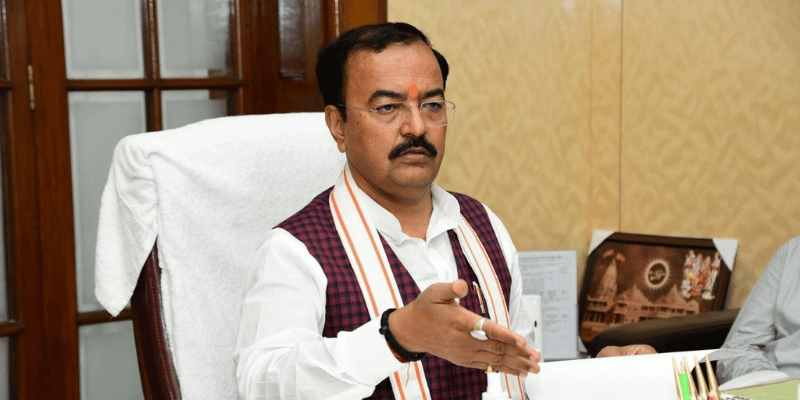The Political Implications of Declining the Ram Temple Invitation: UP Deputy CM Maurya’s Warning
Introduction
In a bold statement that may resonate with many voters across Uttar Pradesh (UP), Deputy Chief Minister Keshav Prasad Maurya has raised the political stakes ahead of upcoming Lok Sabha polls. He has suggested that those who declined the invitation to the Ram Temple’s foundation laying ceremony will face rejection by the electorate. This claim aligns with the broader relationship between religion and politics in India, a country where such intersections frequently influence electoral outcomes. In this blog post, we will examine Deputy CM Maurya’s statement, its implications for the political landscape in UP, and how it may affect the larger scale of national politics.
The Statement and Its Significance
Deputy CM Maurya’s statement came as the Ram Temple in Ayodhya—an enduring symbol of the Hindu faith—neared a critical milestone in its construction. The foundation laying ceremony was a momentous occasion attracting attention and attendance from several key political and religious figures. By asserting that those who declined the invitation would be ‘rejected’ in the upcoming Lok Sabha polls, Deputy CM Maurya underscored the importance of the Ram Temple in the political narrative and symbolically linked political legitimacy with religious sentiment.
Electoral Ramifications in Uttar Pradesh
Uttar Pradesh, being India’s most populous state, holds a significant weight in national politics. The statement by the Deputy CM suggests that the Ram Temple issue could potentially sway voters in the state. It could serve as a litmus test for political alignment, with electoral consequences for those who seem out of step with the prevailing religious sentiment. Such a statement not only sends a clear signal to the electorate about the values and priorities of the ruling party but also puts pressure on opposition figures to navigate the complex interplay between religion and politics in the region.
The National Context
While Deputy CM Maurya’s comments are primarily aimed at the UP constituency, they carry implications for the national political scene. India’s diverse religious makeup means that leveraging religious sites and sentiments can have a powerful impact on elections. Political analysts and commentators will be closely observing how Maurya’s predictions play out on the national stage, and whether the Ram Temple invitation indeed becomes a pivot in the Lok Sabha elections. This becomes even more pertinent given that parties across the political spectrum are keenly aware of the influence religious movements can exert on voter behavior.
Conclusion: The Role of Religion in Indian Politics
The statement by UP Deputy Chief Minister Keshav Prasad Maurya is a testament to the deeply intertwined nature of religion and politics in India. As the country gears up for the Lok Sabha polls, it is clear that places of worship, religious symbols, and ceremonies will continue to be focal points for political discourse and strategy. Whether those who declined the Ram Temple invitation will truly face the electoral consequences as warned by Maurya remains to be seen. However, his proclamation has undoubtedly spotlighted the role of religious sentiment in shaping political narratives and outcomes in India’s vibrant democracy.
—
This blog post reflects an interpretation of current events and analyses potential political outcomes based on the Deputy CM’s statement. As the situation evolves, it will be interesting to see whether his prediction comes to fruition and if similar instances of religious-political intersections will emerge during India’s electoral process.





